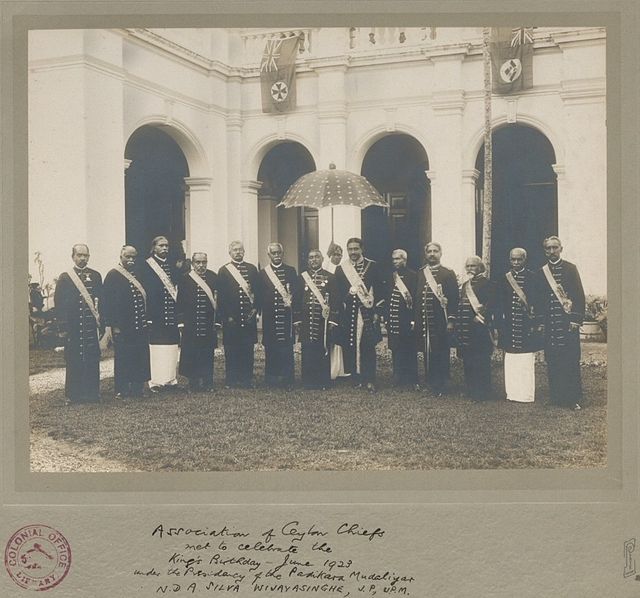Mudaliyar was a Ceylonese colonial title during Portuguese and British rule of the island. Stemming from the native headman system, the title was usually hereditary, made to wealthy influential families loyal to the British Crown.
Mudaliyars of the Association of Ceylon Chiefs met to celebrate the King's birthday in June 1923
Mudaliyar Don Spater Senanayake, son of Don Bartholomew who assumed the name Senanayake, with son-in-law F. H. Dias-Bandaranaike, sons Don Stephen Senanayake, Don Charles and Fredrick Richard, daughter Maria Frances and wife Dona Catherina Elizabeth Perera.
Ponnanbalam Ramanathan in 1906 with his future wife Ms. Harrison (right). Several members of the family were married to western women.
Native headmen system was an integral part of the administration of the island of Ceylon under the successive European colonial powers, namely the Portuguese Empire, the Dutch East India Company and the British Empire. Native headmen or leaders were appointed by the European colonial administrators to function as intermediates between the Europeans and the native populous. During different periods through this system these headmen functioned in military, policing, administrative and ceremonial capacities. They served as translators, revenue collectors and wielded quasi-judicial powers. Much of the system evolved and changed over time until some of the last vestiges of it were removed in the post-independent Ceylon.
Mudaliyars of the Association of Ceylon Chiefs met to celebrate the King's birthday in June 1923
A group of British appointed Kandyan chiefs, with Hon. J. P. Lewis, Government Agent in 1905.




